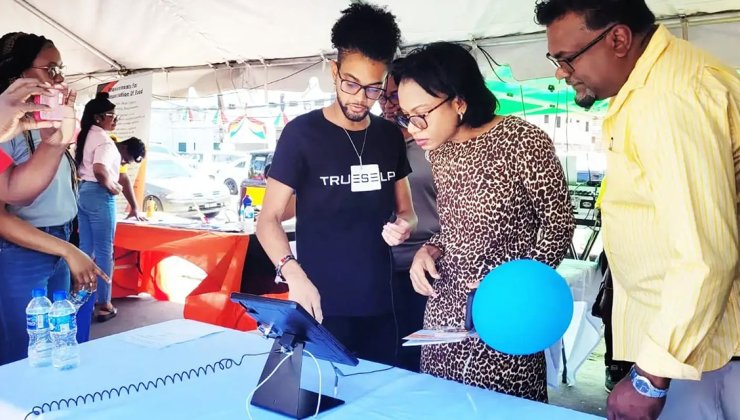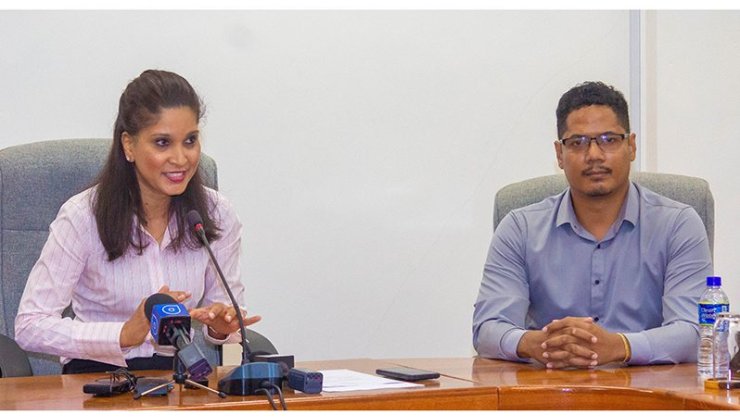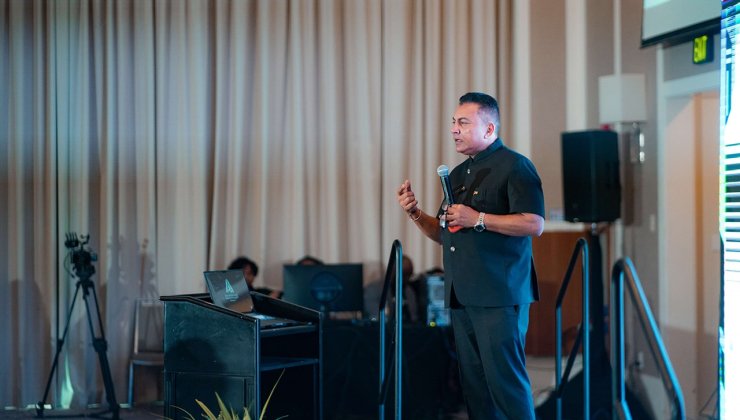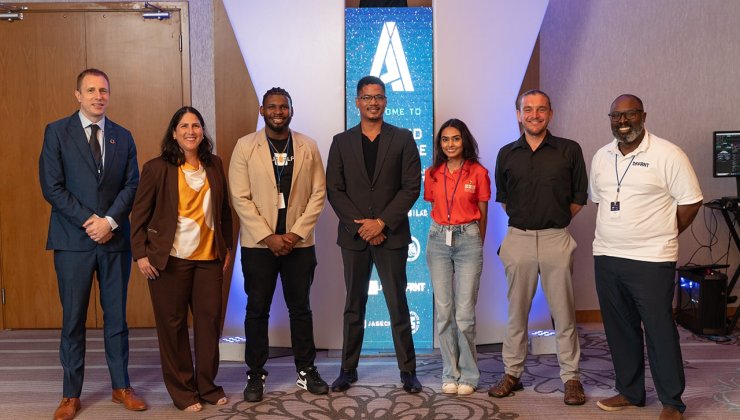FOR two and a half days, 17 innovative minds will participate in the Nexus Hack-Solve to create an Information and Communication Technology (ICT) solution to a national problem and create a prototype programme for possible local consumption.
The Nexus Hack-Solve event will be hosted at the Arthur Chung Convention Centre and falls under the auspices of local social impact and tech company, NeXus Hub Inc., which was launched only last month.
According to Eldon Marks, Director of the event and Chief Executive Officer (CEO) of Version 75 V75), the company spearheading the Hub, the idea for this Hack-Solve stemmed from V75’s participation in the inaugural Hackathon hosted by the Ministry of Public Telecommunications (MoPT).
“We were witness to the talent that exists in the industry and that’s what actually lit a fire in us to say we can possibly do more– at least ourselves– [and] take a grassroots approach,” Marks said.
The Hackathon event is a tech event that pits tech minds against each other to create the best software solution to a predefined problem. Marks however noted that this is where the Hack-Solve differs from the Hackathon.
“What we’ve noticed in the Hackathon, is that competition is good, but won’t help our culture move past the inhibitions that we have, because I think it’s a situation where we need to focus on collaborating rather than competing,” he posited.
More than that, is that the Hack-Solve will be seeking to integrate technical and non-technical persons in the creation of this solution. The predefined roles are: the Ideator, someone who is great at conceptualising solutions; the requirement engineer, who is responsible for detailing the workings required from the solution and on the more technical side: the designer and the front-end and back-end developers, who deal directly with the programming and creation of the software.
The Hack-Solve began on Friday evening with the technologists perusing nine problems sent in by the general public. The first step was, to choose a single problem out of the set so that they could all work towards creating the solution.
The problems included: an automated system for tracking sex offenders in Guyana; reporting traffic and domestic violence; a system to assist the police with missing or wanted persons; a software to detail transportation data; a court app for court days and general information; a platform for local vendors to showcase their products; a platform to raise civic awareness, particularly about politics; a log system for garbage and finally, a platform to index civic engagement and advocacy groups.
After the technologists have decided on a problem, they will work until Sunday to create a prototype solution.
“It is something that we have no idea of how it will turn out, it is sort of a social experiment,” Marks explained, but shared that he has positive expectations. Aside from creating a solution, the idea is to embed a kinesthetic experience of civic responsibility of solving problems instead of merely talking about them.”
Moving forward however, Eldon said: “Much of what will happen in terms of trajectory and strategy will be taken care of during the ideation session, but what is done with the software solution is pretty much 50 percent their responsibility regarding what happens next.” He however gave the assurance that the MoPT has shown its support and he believes there is scope for collaboration there.
Affirming this commitment was technical adviser to the Minister of Public Telecommunications, Lance Hinds, who shared the ministry’s vision of advancing ICT by creating an enabling environment for it.
He shared that the hackathon event was only meant to show persons the possibilities in the field and it was initiated with the hope that the private sector would one day take over, and as such, he expressed kudos to Nexus Hub for stepping up to the mantle. Similarly, CEO of Metro Guyana Avia Lindie shared her commitment to the exciting and unique industry.
This event falls under the general mandate of the Nexus Hub, which is based on three main objectives. These are: to foster collaboration through a physical space, online platform and programmes; to drive innovation with collaborative environments, tools, funding and mentorship; and to create opportunities through capacity-building, networking and support platforms.






